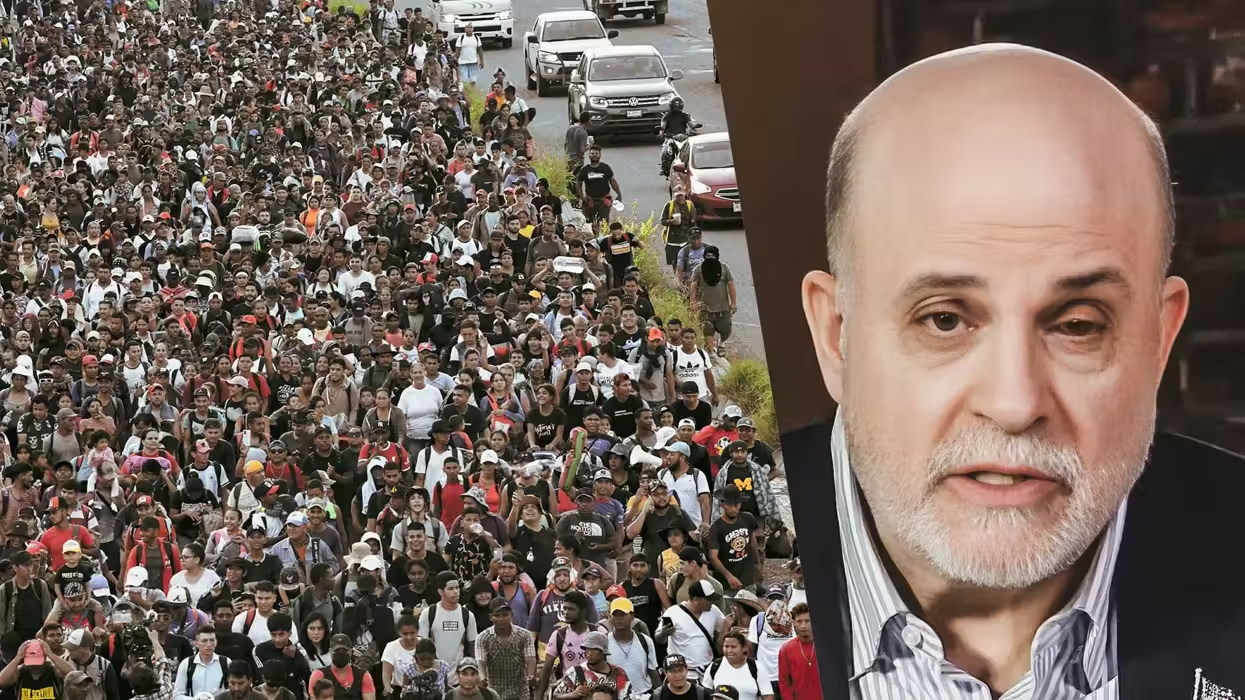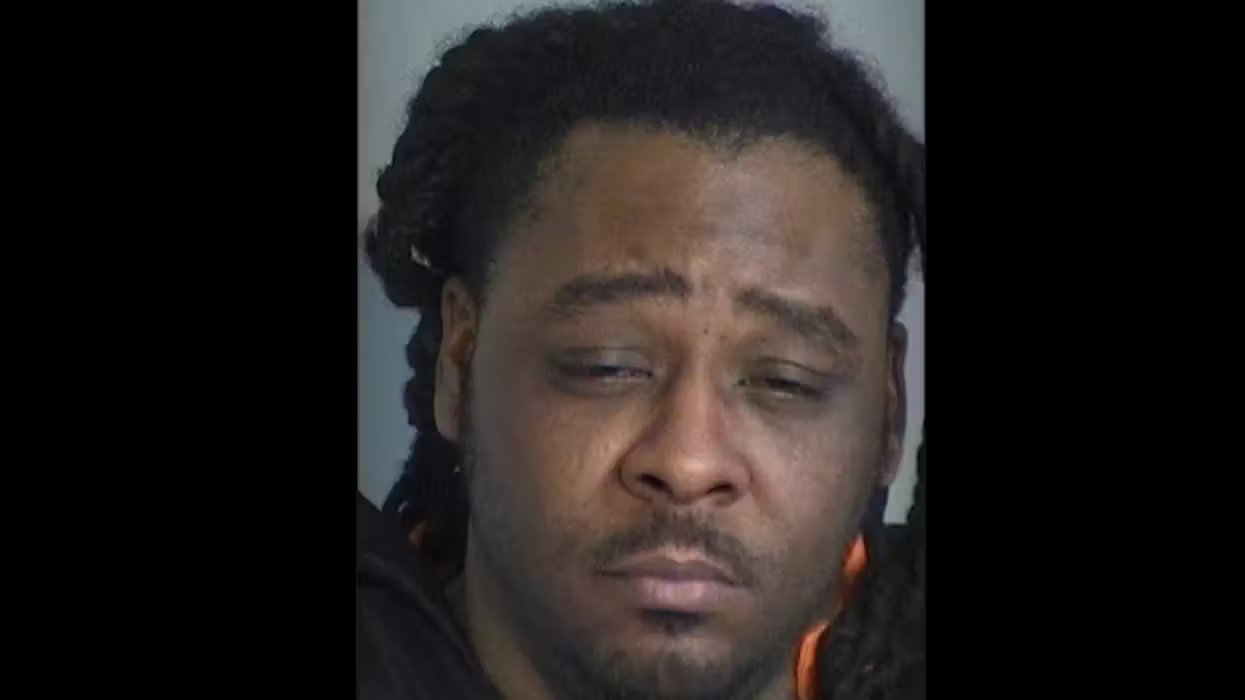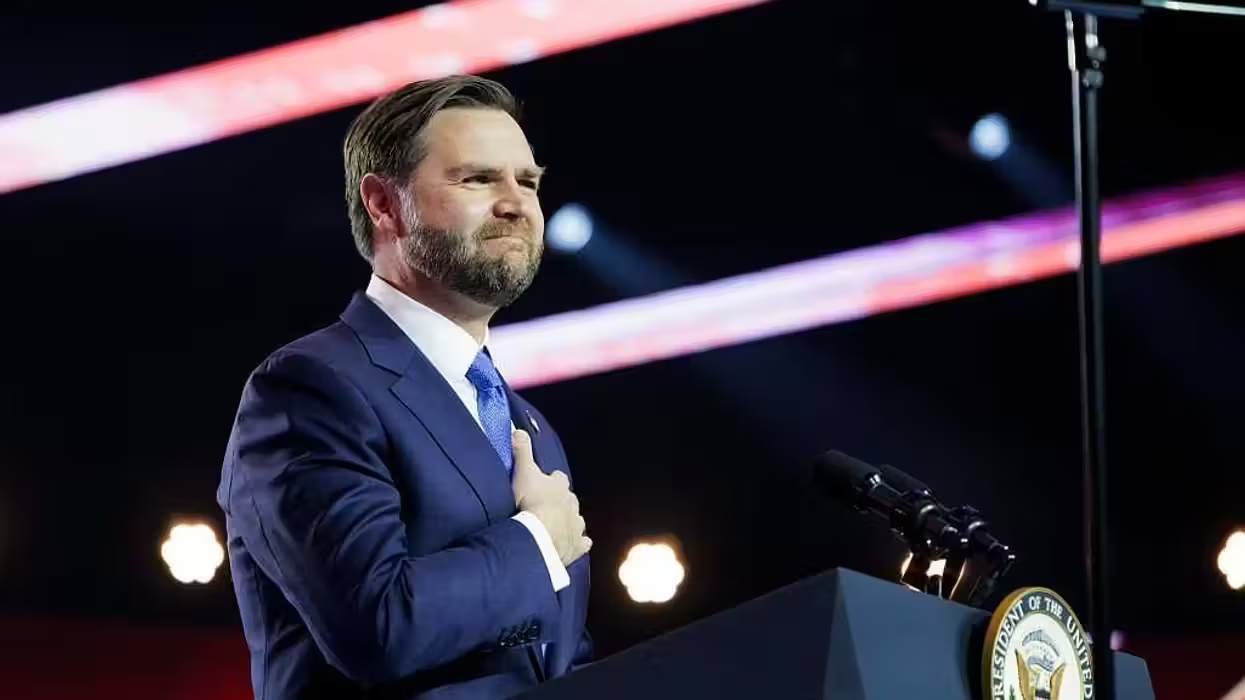 President Barack Obama talks about the situation in Ukraine, Thursday, March 6, 2014, in the briefing room of the White House in Washington. The president said a referendum for Ukraine's Crimea region to separate and become part of Russia would violate international law (AP)
President Barack Obama talks about the situation in Ukraine, Thursday, March 6, 2014, in the briefing room of the White House in Washington. The president said a referendum for Ukraine's Crimea region to separate and become part of Russia would violate international law (AP)
WASHINGNTON (TheBlaze/AP) -- The Republican-controlled House voted 385-23 on Thursday to provide loan guarantees to Ukraine, the first in what will likely be a series of steps Washington will take to help the fledgling country.
The Obama administration proposed earlier this week that Congress grant Ukraine a loan guarantee of up to $1 billion.
The House Foreign Affairs Committee unanimously approved a separate resolution condemning Russia's takeover of Ukraine's Crimea and urging visa, financial and trade sanctions. Senators are at work on a larger bill putting together all elements of a U.S. response and hope to introduce the legislation next week.
Should the bill pass the Senate, the loan will be disbursed via the State Department’s Economic Support Fund.
The bill "moved through the House with unusual speed and bipartisan support, reflecting the intense interest on Capitol Hill to help the struggling Ukrainian government respond to a crisis that has revived Cold War tensions,” Politico reported.
The financial aid package "will help stabilize Ukraine’s economy and provide needed assistance to its citizens during the transition. As the Ukrainian people stand and fight for freedom and democracy it is incumbent that we, who love freedom, offer them our full support,” Rep. Candice Miller (D-Mich.) said in a statement after it passed.
But not everyone agrees.
"Russia’s invasion of Crimea is a clear act of aggression," a spokesperson for Rep. Kerry Bentivolio (R-Mich.) said in an email. "However, this bill does not address that issue. Congressman Bentivolio does not support unilaterally backing loans for a foreign country when we have a growing debt problem at home."
Twenty-two Representatives did not vote.
Here’s a breakdown of the vote:
The EU offered $15 billion in aid to help Ukraine's cash-depleted economy on Wednesday, still far short of the $35 billion that Ukraine's government says it needs in bailout loans through next year. The U.S., EU and others are trying to work out a package with the International Monetary Fund.
Showing greater caution than Obama on sanctions, German Chancellor Angela Merkel said European penalties against Russia depend "on how the diplomatic process progresses." EU President Herman Van Rompuy said travel bans, asset freezes and the cancellation of an EU-Russia summit could still come. Polish Prime Minister Donald Tusk acknowledged "no enthusiasm" in Europe for economic sanctions.
Western leaders fear Russia is becoming entrenched in Crimea and could turn its focus to Ukraine's industrial heart in the east, where Russian speakers similarly are a majority. Central and Eastern European countries that lived for decades under the Soviet Union's domination are especially sensitive to the threat. Lithuanian President Dalia Grybauskaite warned, "After Ukraine will be Moldova, and after Moldova will be different countries."
For the U.S. and its allies, the specter of Georgia's 2008 schism looms large. After a nine-day war between Russia and Georgia's then pro-Western government, the Kremlin supported two regions in breaking away from Georgia. Most of the world doesn't recognize their independence, but Russia protects their autonomy. Then, as now, the U.S. and EU reaction was limited in scope and included no military moves. In the United States, Obama initiated a "reset" of ties with Russia less than a year later.
With Ukraine at risk of a similar fate, the U.S. has suspended talks on an investment treaty with Russia. NATO has halted military cooperation with Russia and has decided to review all aspects of the relationship with Moscow. The U.S. and European countries have halted preparations for a planned June summit in Russia's Black Sea resort of Sochi.
But so far Putin hasn't budged. His government claims that Viktor Yanukovych, the ousted president, remains the leader of Ukraine. The pro-Russian Yanukovych fled to a location near Moscow for protection.
Also Thursday, Secretary of State John Kerry met again with his Russian counterpart, Sergey Lavrov. Kerry stressed a need for a direct Russian-Ukrainian dialogue and the importance of allowing international monitors into Crimea and eastern Ukraine. Diplomatic progress appeared elusive.
--
Follow Becket Adams (@BecketAdams) on Twitter

 President Barack Obama talks about the situation in Ukraine, Thursday, March 6, 2014, in the briefing room of the White House in Washington. The president said a referendum for Ukraine's Crimea region to separate and become part of Russia would violate international law (AP)
President Barack Obama talks about the situation in Ukraine, Thursday, March 6, 2014, in the briefing room of the White House in Washington. The president said a referendum for Ukraine's Crimea region to separate and become part of Russia would violate international law (AP)






